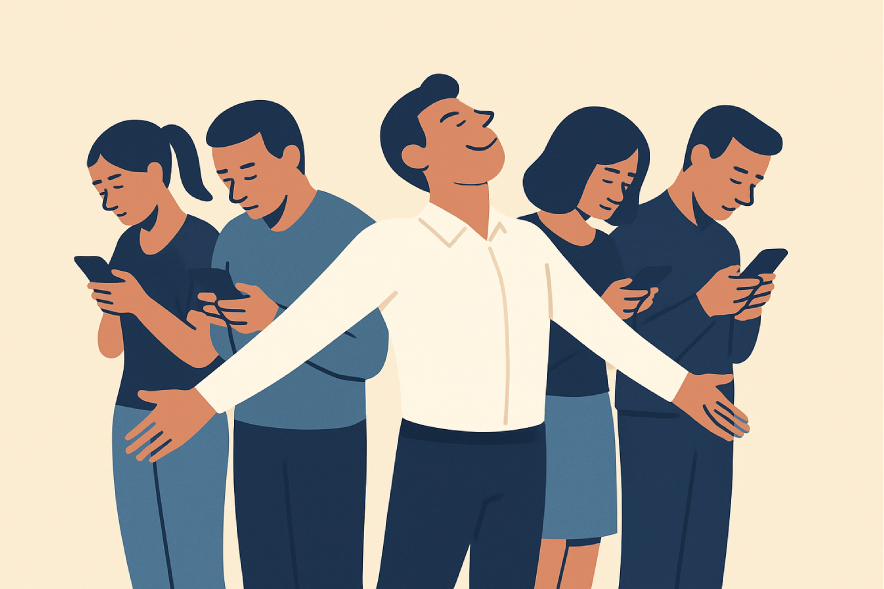At first, it seems impossible. How do they keep up with memes? What about those high school classmates they don’t actually care about but still like to low-key stalk? And how do they know if it’s someone’s birthday without a notification? Turns out, they manage just fine. Maybe even better than the rest of us.
Why do some people skip social media?
Not everyone wants to be plugged in 24/7. Some people never got into it in the first place and don’t feel like starting now. Others gave it a shot, got tired of it, and walked away. And then there are the ones who avoid it on purpose—because let’s be real, social media can be kind of a mess.
There’s actual research backing this up. A study from the University of Bath found that just one week without social media improved people’s mental health. No endless scrolling, no stressing over likes, no feeling like everyone else has their life together except you. Sounds pretty nice, doesn’t it?
Privacy is another big one. Social media collects an insane amount of personal data—every like, every comment, every weirdly specific ad for that thing you mentioned out loud once. Some people just aren’t cool with that. They’d rather live their lives without an algorithm tracking their every move. Fair enough.
What’s life like without it?
Imagine waking up and not reaching for your phone first thing. Having a meal without pausing to snap a picture. Hanging out with friends and actually, you know, paying attention to them. That’s daily life for people who don’t use social media.
They don’t lose hours watching pointless videos. They don’t get sucked into comment-section arguments with strangers. They don’t even know what their coworker had for brunch last Sunday, and somehow, life goes on.
One guy who quit social media said he suddenly had way more time. Instead of scrolling, he read books, picked up new hobbies, and got more done at work. Another person said they felt way less stressed. No pressure to post, no comparing their life to someone else’s highlight reel, no second-guessing whether their vacation pics were “post-worthy.” Just living, without the extra noise.
Are they missing out?
Okay, let’s be honest—social media isn’t all bad. It’s fun. It keeps you in the loop. It’s how you find out about parties, weddings, and that one friend’s new puppy. If you’re not online, you might miss things. And good luck trying to explain why you didn’t see someone’s big announcement when “I don’t have Facebook” sounds about as believable as “My dog ate my phone.”
And memes! Let’s not forget memes. Without social media, how do you stay updated on the latest internet jokes? By the time someone texts it to you, the trend is probably already dead.
But here’s the thing—people who don’t use social media still have ways to keep up. They call. They text. They actually meet up in person. They get their news from, well, actual news sources instead of a random Facebook post from their uncle who believes the moon landing was fake. They still have friends. They just don’t have 500 of them in a virtual list.
Could you do it?
The idea of quitting social media might seem crazy. But what if you tried it, just for a little while? No endless scrolling. No stress over crafting the perfect post. No getting mad at strangers in the comments. Just more time for stuff that actually makes you happy.
People who don’t use social media aren’t some kind of rare breed. They’re just regular folks who made a different choice. And while they might not always know the latest viral trend, they also don’t spend hours staring at their phones, wondering why they even opened the app in the first place. Maybe they’re onto something after all.
